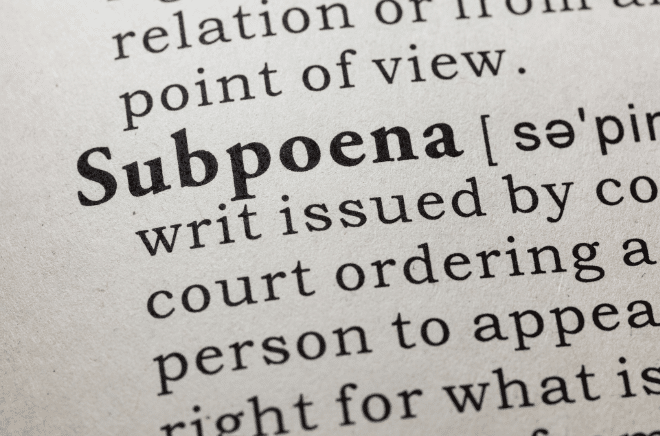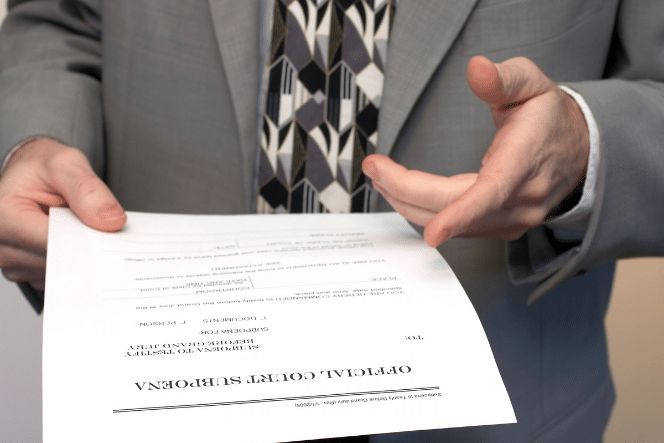 A subpoena is a legal order that requires you to produce documents or testify in court. Failure to
A subpoena is a legal order that requires you to produce documents or testify in court. Failure to
comply can result in severe consequences. That is why receiving a federal subpoena can be a
stressful and overwhelming experience for individuals and businesses alike.
If you get hit with a federal subpoena, don't panic. In this post, we’ll walk you through the steps
you need to take to handle a federal subpoena and protect your rights.
Review The Subpoena
The first thing you should do when you receive a federal subpoena is review it carefully. In
particular, review the deadline and the specific information or documents requested. It's
important to understand what is being asked of you so you can take appropriate action.
Federal prosecutors or grand juries issue subpoenas. They are issued in both civil and criminal
cases and can be served on individuals, businesses, and organizations. Once you have
reviewed the subpoena, you should immediately contact an attorney.
Contact An Experienced Attorney
You should contact an experienced attorney who can help you understand your legal obligations
and protect your interests. An attorney can review the subpoena with you, help you identify
potential legal issues, and develop a response strategy.
Your attorney can also help you determine whether the subpoena is legitimate or if issued in
bad faith. They can also help you prepare for a potential deposition, hearing, or trial.
Preserve All Your Documents
Once you receive a subpoena, you must preserve all documents and data relevant to the
subpoena. This includes both physical and electronic documents. It is important to keep all
relevant documents and to do so quickly. If documents are lost or destroyed after the subpoena
is issued, it can have serious consequences.
Determine If Any Objections Apply
Depending on the subpoena’s scope, you may be able to raise specific objections to the
requests for information. You may be able to object if the subpoena is overly broad or if it
requests confidential information. Your attorney can help you determine if any objections apply
and help you prepare a response that addresses them.
Objections to a subpoena can include claims of privilege or constitutional protections. Your
attorney can help you evaluate whether an objection is appropriate in your case.
Produce Responsive Documents
If there are no valid objections to the subpoena, you must produce the requested documents by
the deadline. Your attorney can help you gather and organize the relevant documents and
ensure they are produced promptly.
It is important to note that failure to comply with a subpoena can result in serious
consequences, including sanctions or even criminal charges. Your attorney can help you ensure
that you comply with the subpoena while also protecting your rights.
Negotiate With The Prosecutor
In some cases, it may be possible to negotiate with the prosecutor to limit the subpoena’s scope
or extend the compliance deadline. Your attorney can help you explore these options and
negotiate on your behalf.
Dealing with a prosecutor can be a delicate process, and it is important to have an experienced
attorney who can help you navigate the process effectively.
Overall, it's important to take a federal subpoena seriously and seek the advice of an
experienced attorney as soon as possible. Failure to comply with a subpoena can result in
severe consequences, including fines, imprisonment, and damage to your reputation. By
following these steps and working with a knowledgeable attorney, you can confidently navigate
the subpoena process and protect your rights.




